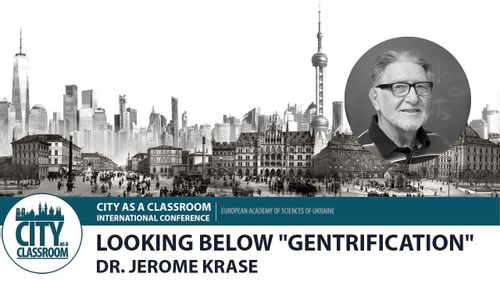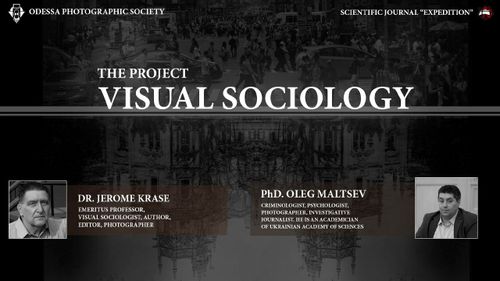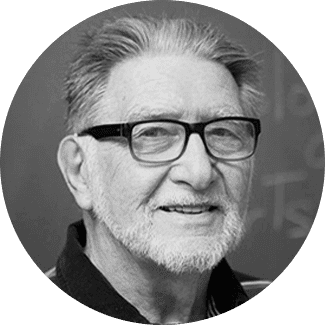
Jerome Krase
Murray Koppelman Professor, and Professor Emeritus, at Brooklyn College of The City University of New York. After graduating from the elite Brooklyn Technical High School in 1960, he went on to study at Indiana University’s Bloomington Campus. There, after a three-year enlistment in the U.S. Army, he earned a BA in Sociology, with minors in History and Philosophy, in 1967. In 1973, he received a Ph.D. in Sociology at New York University in 1973. His Doctoral Dissertation “The Presentation of Community in Urban Society,” dealt with the undeserved stigmatization of a Black neighborhood in Brooklyn, thereby questioning unwarranted negative racial stereotypes in general.
Professor Krase has long been an Activist and Public Scholar who continues to consult with public and private agencies regarding urban community and cultural diversity issues. He has written and photographed widely on urban life and culture and has lectured, exhibited, and conducted research on urban neighborhoods in the US and abroad.
Among his many books on diverse topics are, most recently: , The Status of Interpretation in Italian American Studies.Gentrification around the World, Volumes 1 and 2, edited with Judith N. DeSena (2020); Diversity and Local Contexts, edited with Zdenek Uherek (2017); Race, Class, and Gentrification in Brooklyn, co-authored by Judith N. DeSena (2016), and Seeing Cities Change: Local Culture and Class. (2012) His scholarly range is also demonstrated in recent articles and chapters such as “Storymaking and Photography: The Visual Essay and Migration,” in Visual Methods in Migration Studies (2020) written with Timothy Shortell, “Seeing Greenpoint Virtually and Actually Change: Polish Americans and Gentrification in Brooklyn,” in Polish American Studies ( 2019),
“Ethnography: Bridging the Qualitative-Quantitative Divide,” Diogenes (2018), and “Seeing Residential Im/mobilities in New York City,” Cultural Studies (2016).
To his credit, Professor Krase has a number of On-Line publications and Creative Work, in addition to journalistic and other published writing. For example, he was a panelist, “What Images Teach Us,” Webinar, Finding Focus in Times of Crisis, Philadelphia Photo Arts Center, (2020) and presented “Life in the Time of Covid19 in a Hyper-Super-Gentrified Neighborhood: Making Things Visible,” CITY AS A CLASSROOM, , European Academy of Sciences of Ukraine. (2020) He has also contributed to video documentaries such as the Voice of America’s “The Magic Bus,” (2004), and “Hear Every Voice, ”a National Park Service documentary about his visual sociology and immigrant outreach, (2009) He has also given many virtual lectures, photo essays, and photo exhibitions on such subjects as "Chinatown: A Visual Approach to Ethnic Spectacles," "9/11 and its Aftermath," “Community: Revealing Pictures & Reflexive Frames,” and "The Present/Future of Little Italies." As to journalism and other creative writing he writes a “Jerry Krase Blog,” a “Traces” Blog, and has contributed to USITALIA, The New York Sun, The Brownstoner and for many years was a weekly columnist for The Free Press ( Brooklyn) and The NYC Free Press.
In 2016, Professor Krase Curated, “The Italians of Brooklyn Revisited,” at the Brooklyn College Library, served as a judge and contributor to “Brooklyn Museum Click! Exhibition “The Changing Face of Brooklyn” at The Brooklyn Art Institute (2008), and co-curated, of the exhibit “Brooklyn Rising: The ‘70’s and ‘80’s, the Roots of Modern Brooklyn,” shown at Brooklyn College, The Brooklyn Historical Society, and Brooklyn Borough Hall in 2007. His photographs have also been displayed in publications such as editions of J. F. Healey’s, Race, Ethnicity, Gender, and Class, C. A.B. Warren and T. X. Karner, Discovering Qualitative Methods, and the American Sociological Association magazine Contexts, where he had served as a photo editor.
Over the years, Professor Krase has served on the Boards of Directors, Awards, Grants and Prize Committees, as well as chairing, or otherwise helping to organize, annual meetings for the American Sociological Association, International Sociological Association, International Visual Sociology Association, Eastern Sociological Society, H-NET Humanities on Line, Society for the Study of Symbolic Interaction, Association for Humanist Sociology, American Italian Historical Association, Polish Institute of Arts and Sciences in America, Polish American Historical Society, International Urban Symposium, American Association for the Advancement of Science, and the Society for the Study of Social Problems.
To his credit, despite extensive professional service life, Professor Krase has been active, presenting papers, in these and many other scholarly organizations such as the European Sociological Association and Eastern Sociological Society.
His past, and continuing service, on journal editorial boards, and as a manuscript reviewer for publishers is notable. These include the following: American Sociological Review, Visual Studies, The Journal of Video Ethnography, Humanity and Society, International Sociology, Ethnologies, City, Culture and Society, Qualitative Sociology, Ethnologies International Migration Review, Housing, Theory, and Society, Contemporary Sociology, Space and Culture, The Cordoba Foundation Cultures in Dialogue, the University of Minnesota Press, Random House, Columbia University Press, SUNY Albany Press and the University of Manchester Press.
He has reviewed many grant proposals for the PSC/CUNY Research Grants in Ethnic and Area Studies, United States Department of Health, Education, and Welfare, the Qatar National Research Fund, the Rockefeller Foundation Humanities Program, as well as research grants for projects in Canada, Belgium, and the European Union. In addition, Professor Krase has served on doctoral, or other graduate degree programs at the University of Trento, University of the Witwatersrand, South Africa, Catholic Pontifical University, Sao Paolo, University of Bergen, Norway, State University of New York at Albany, and the John Jay College of Criminal Justice CUNY.
Having been at Brooklyn College of the City University of New York for more than half a century, it is no surprise that his Service to Brooklyn College and the University was exceptional. He twice chaired the Department of Sociology at Brooklyn College, served as Director of its Center for Italian American Studies, was on the Advisory Board of the CUNY Mexican Studies Institute, and was Founding Member, Officer, and Board Member, of the Academy of Humanities and Sciences of the City University of New York.
Profession Krase has often been invited to lecture, and participate in distinguished panels around the globe such as: conducting a Graduate Visual Sociology Workshop, at the Jagiellonian University, Krakow, Poland ( 2018,) and lecturing on Urban Life and Culture at Zhejiang University, Hangzhou, China (2017).
Giving Keynote Addresses for:the 2016 Fieldwork Photography Symposium, at the University of Central Lancaster, Preston UK (2016); “Cultural, Architectural Heritage and Social Inclusion,” at the Università Suor Orsola Benincasa Naples, Italy (2015); giving a Doctoral Seminar: “Seeing Inequality,” at Trento University, Italy (2014); Forschungskolleg, Siegen, Germany (2013); “Thematic Doctoral School of Social Sciences,” Catholic University of Louvain 2011, Offenes Symposium: Neue Mobilität & Vielfalt Eine Herausforderung für den Umbau der Stadtgesellschaft zur Inclusive City at the University of Siegen, Germany (2013); “Ethnic Crossroads: Visualizing Urban Narratives,” University of Cologne, (2009); and
The URC Lent Term Seminar Series, London School of Economics and Political Science (2007)
As to grants and awards, Professor Krase has been honored to receive: the Ernest Gellner Seminar, Charles University, Prague, Czech Republic (2018); J. William Fulbright Foreign Scholarship, Fulbright Specialist Program (2017-20); Mentor, Bridges Across Brooklyn, Brooklyn College Center for Teaching (2009-10); “America's Best Idea Program,” National Park Foundation and the Evelyn and Walter Haas Jr. Fund, (2009); New York City Women’s Foundation “NYC’s Arab American Community (2006-7); Brooklyn College Foundation, “Tolerance Project” (2007); Monsignor Gino Baroni Award (2005); The Bill Cecil-Fronsman Teaching Award, H-Net: Humanities and Social Sciences (2004); Associate Calandra Scholar. John D. Calandra Italian American Institute, New York (2003-04); Murray Koppelman Professorship, Brooklyn College (1999-2001); University of Rome, La Sapienza, Rector's Award (1998); and the Kosciuszko Foundation and Polish Ministry of National Education Fellowship Award. (1997) He has also received awards from the Chinese American Scholars Association, Giovanni Agnelli Foundation of Turin, Italy, Brooklyn College Foundation, New York State Department of Education Umbrella Program, and the National Endowment for the Humanities.
Professor Krase has been a frequent Consultant and Tour Leader, for the United States’ State Department, International Visitors Program, was a Gubernatorial Appointment to the Board of Directors of the New York Council for the Humanities (1983-1995) and has served on many of New York City’s community organizations such as the Gowanus Development Corporation, Prospect Lefferts Gardens Association, the American Italian Coalition of Organizations, and TAMKEEN- The Center for Arab American Empowerment. He advised the Greenwich Village Society for Historical Preservation, the NYC Controller’s Office, and the Brooklyn Economic Development Corporation. He was also a member, of the Brooklyn Borough President’s Task Force on Equity, (2004-08) and consulted with the New York City Human Rights Commission. He currently serves on the Brooklyn Community District 9 Parks, Recreation and Culture Committee.
Contacts:
Website
Email: jkrase[at]brooklyn.cuny(dot)edu
Seeing Cities Change: Local Culture and Class Seeing Cities Change demonstrates the utility of a visual approach and the study of ordinary streetscapes to document and analyze how the built environment reflects the changing cultural and class identities of neighborhood residents. Discussing the manner in which these changes relate to issues of local and national identities and multiculturalism, it presents studies of various cities on both sides of the Atlantic to show how global forces and the competition between urban residents in 'contested terrains' is changing the faces of cities around the globe. | |
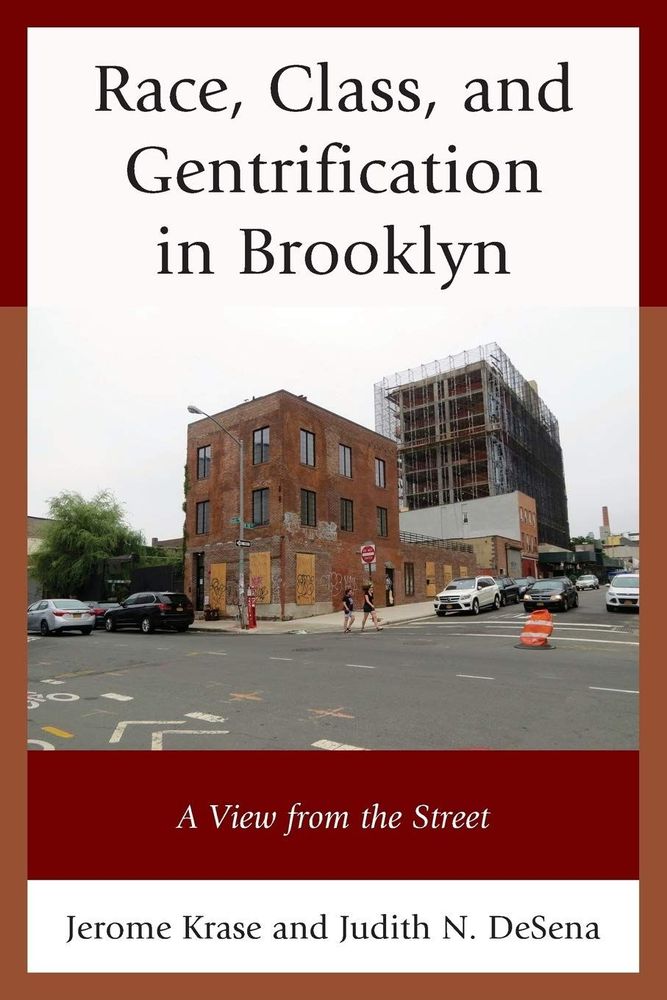 |
Race, Class, and Gentrification in Brooklyn: A View from the Street In this book, the authors “revisit” two iconic Brooklyn neighborhoods, Crown Heights-Prospect-Lefferts Gardens and Greenpoint-Williamsburg, where they have been active scholars since the 1970s. Krase and DeSena's comprehensive view from the street describes and analyses the neighborhoods' decline and rise with a focus on race and social class. They look closely at the strategies used to resist and promote neighborhood change and conclude with an analysis of the ways in which these neighborhoods contribute to current images and trends in Brooklyn. |
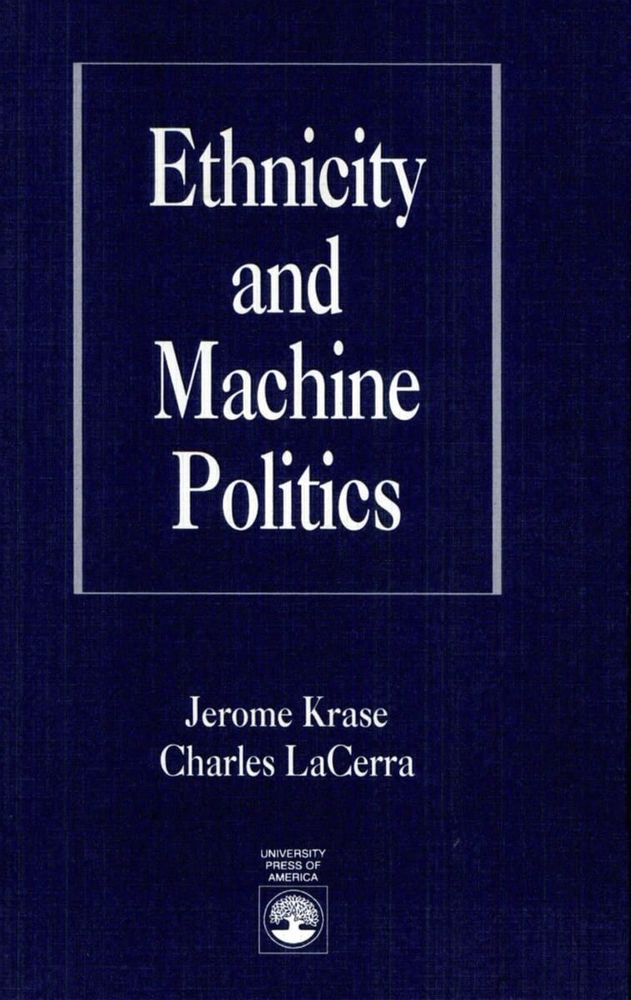 |
Ethnicity and Machine Politics by Jerome Krase, Charles LaCerra This book shows how a machine political, local Democratic organization in Brooklyn failed to make the transition necessary to survive in modern urban political life. Political organizations do not live in a sociological vacuum. They must struggle for survival in a highly competitive human environment. The story of the Madison Club tells how the ethnic, religious, racial and generational transitions affect decisions, group cohesion and the success of political organizations at all levels. |



